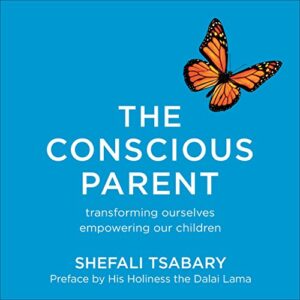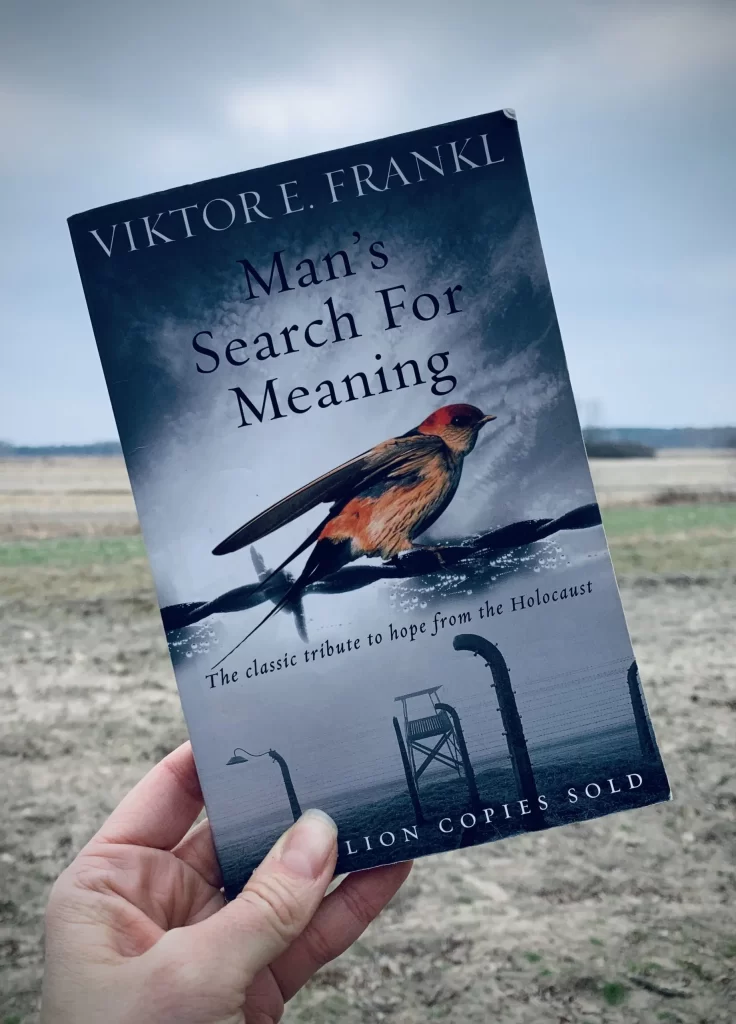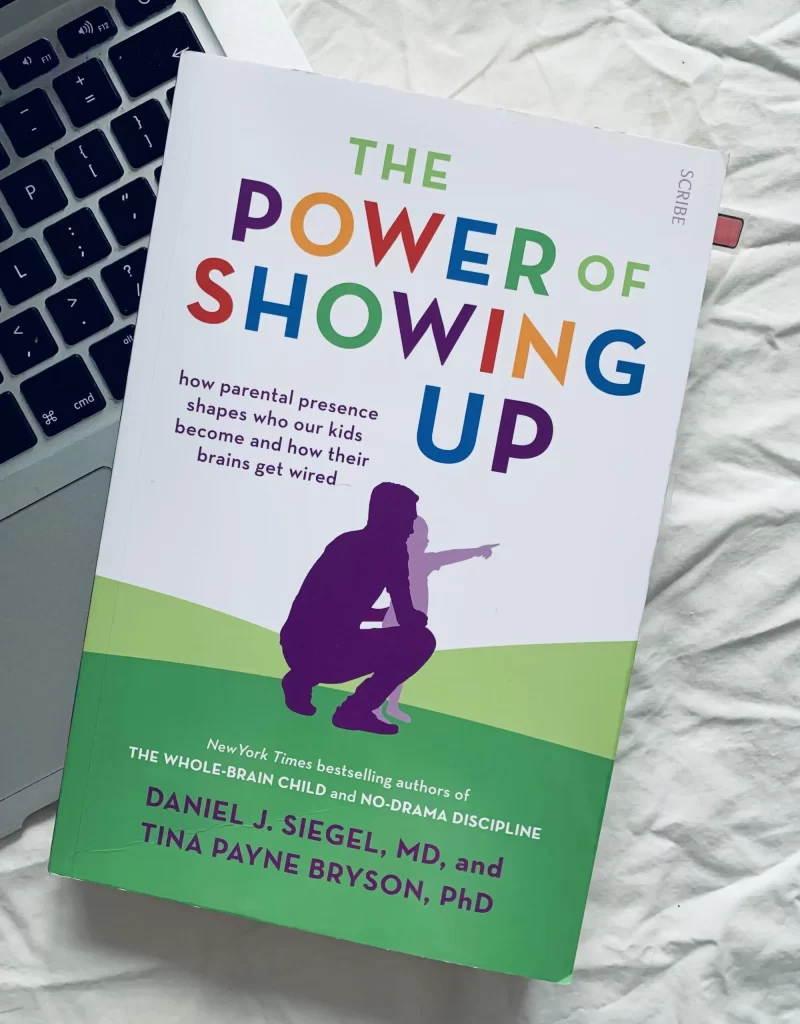 The Conscious Parent. Book summary
The Conscious Parent. Book summary
Transforming Ourselves, Empowering Our Children
Shefali Tsabary
Hodder & Stoughton (15 January 2015)
About the author
Dr Shefali Tsabary is a clinical psychologist with a private practice in New York. She received her doctorate in clinical psychology from Columbia University. Specializing in the integration of Western psychology and Eastern philosophy, she brings together the best of both worlds for her clients. She is an expert in family dynamics and personal development, teaching courses around the globe. She has written four books, three of which are New York Times best-sellers, including her two landmark books, The Conscious Parent and The Awakened Family.
About the book
“To parent perfectly is a mirage. There is no ideal parent and no ideal child.
The Conscious Parent underscores the challenges that are a natural part of raising a child, fully understanding that, as parents, each of us tries the best we can with the resources we have.
The objective of this book is to illumine how we might identify and capitalize on the emotional and spiritual lessons inherent in the parenting process, so that we can use them for our own development, which in turn will result in the ability to parent more effectively. As part of this approach, we are asked to open ourselves up to the possibility that our imperfections may actually be our most valuable tools for change.”
If you are looking for a good read on how to parent consciously, start with this book. It sheds some light on the spiritual side of the parenting journey and offers a radically new perspective on raising children. I saw Dr Shefali’s TED talk some time ago and was super excited to read The Conscious Parent.
This book is not a set of “quick-fix” strategies. It is more like a philosophical guide on how we can use parenting relationships for personal transformation and spiritual growth…while raising amazing human beings!
I personally really liked the book as it combines my two favourite things: Western psychology and Eastern philosophy. And I must say, Dr Shefali is not only a professional clinical psychologist but also a fantastic writer!
The book is packed with great ideas and definitely offers food for thought. In these notes, we’ll scratch the surface by looking at our favourite ideas, so definitely grab the book – it is awesome.
Key insights:
You are raising a spirit throbbing with its own signature
“When you parent, it’s crucial you realize you aren’t raising a “mini-me”, but a spirit throbbing with its own signature. For this reason, it’s important to separate who you are from who each of your children is. Children aren’t ours to possess or own in any way. When we know this in the depths of our soul, we tailor our raising of them to their needs, rather than molding them to fit our needs.”
Yes! Yes! Yes! That is something that parents forget too often. And it is the first step towards becoming a conscious parent – we need to accept that our child is a unique human being who can be much different from us. Look for these differences and celebrate them with love.
One more important note from Dr Shefali: we need to parent our children as they are, not as we might wish them to be:
“Children come to us full of the what is, not what isn’t. When we see our own reality for all it isn’t, we teach our children to operate from lack. When we see our children for all they are yet to become, barely recognizing all they already are, we tech them they are incomplete. For our children to see a look of disappointment in our eyes sows in them seeds of anxiety, self-doubt, hesitation, and inauthenticity. They then begin to believe they should be more beautiful, competent, smart, or talented. In this way, we strip them of their enthusiasm for expressing themselves as they are right now.”
Love it! Accept and appreciate your children as they ARE. They are ENOUGH. Here is a challenge for you – today, before bedtime, look your child in the eyes and say three things you appreciate about them. Examples: “I appreciate that you are a great learner / curious / kind / beautiful / tried your best when playing football today/ helped me in the evening”. Make it a habit. That’s not only a great way to connect with your child but also a way to build a strong foundation for your child’s self-esteem.
P.S.: if you feel inspired, check out our post on 14 Things You Should Always Say to Your Child.
The spiritual purpose of parenting – children can awaken us
“Whether we unconsciously generate situations in which we feel the way we did when we were children, or we desperately struggle to avoid doing this, in some shape or form we inevitably experience the identical emotions we felt when we were young. This is because, unless we consciously integrate the unintegrated aspects of our childhood, they never leave us but repeatedly reincarnate themselves in our present, then show up all over again in our children. Hence by offering us a reflection of our unconsciousness, our children bestow on us an inestimable gift. As they provide us with opportunities to recognize our unconsciousness as it manifests in the here and now, we have a chance to break free of the clutches of our past so that we are no longer ruled by our early conditioning. Our children also reflect back our success or failure in this venture, thereby showing us in which direction to proceed.”
Parenting is one of the biggest opportunities to GROW spiritually. If we approach it consciously, our children can become our greatest teachers. Seriously. That is an opportunity to look back at our childhood and release the trigger points that hold us back in life. And guess what? All the challenging moments with your child are actually the best GROWTH opportunities:
“If you understand that the inappropriate behaviour of your children is a call to increased consciousness on your part, you are able to view the opportunities they afford you to grow differently. Instead of reacting to them, you look within yourself and ask why you react. In the asking, you open a space for consciousness to arise.”
Question for you: what are your triggers? Why do you think you react? How can you respond differently?
P.S.: It also reminds me of Hal Runkel’s idea in Screamfree Parenting:
“Every interaction with our children, every tiny conversation and every huge argument, carries the potential for growth.”
If we want to raise self-driven adults, we need to: focus on ourselves first, calm ourselves down and grow ourselves up ☺ requires loads of effort but offers loads of long-term benefits for both sides. Try it.
There is only one way to learn conscious parenting
“A conscious parent doesn’t look outside the parenting relationship for answers, but is confident the answers can be found for both parent and child within the parent-child dynamic. For this reason, conscious parenting is learned through the actual experience of relating to our children, not through reading books that offer quick fixes or taking classes that specialize in techniques. Of course, to parent this way requires the full and willing participation of the parent, for only through interaction with the parent’s own developing consciousness can change take place within a child.”
Yep, we can’t become conscious parents overnight. The only way is to practice daily by engaging in a relationship with your child.
What we need to do is to become observers of our own behaviour when we are interacting with children. As Dr Shefali says, we must consciously become “vigilant witnesses of our own unconsciousness”. We have to pay attention to our habits, thoughts, emotions and presence.
Unconsciousness is not the enemy but a platform for consciousness to arise. And living consciously is not a destination but an ongoing process.
P.S.: btw living consciously is the first pillar of self-esteem. By practising conscious living, you can improve your life significantly.
You can use Nathaniel Branden’s sentence completion framework and try completing the following stems:
Being a conscious parent to me means…
If I bring 5 per cent more awareness to my activities today…
If I pay more attention to how I deal with my child today…
If I bring 5 per cent more awareness to my triggers, then…
Egoic state and parenting
“Parenting is a journey that tends to begin with a high level of egoic narcissism, an energy we take into our relationship with our child. The consequence is that we can easily, though in many cases inadvertently, fall into the trap of using our children to fill some need in ourselves, all the while under the illusion that we are living, giving of ourselves, and nurturing. We use them to try to heal our broken self, use them by thrusting them into roles in the family that aren’t theirs by right, use them to provide ourselves with a sense of worth, and use them to magnify our illusion of our influence in the word.
We find it hard to believe that many of us became a parent, at least in part, to fulfil our own longing. Unless we realize how strongly our ego drives us and gradually free ourselves from our identification with it, we will parent our children from this false state, which will render us unable to connect with their core self.”
Love this perspective. Do you parent from an egoic state? Here is a reminder from Dr Shefali:
“Ego is in operation anytime we find ourselves attached to a thought pattern or belief system. We often don’t even recognize we are attached until we are triggered on an emotional level.”
Importantly, when we live in an egoic state, we don’t see our children (or other people in general) for who they are in their essence. And that’s where many issues with a child’s self-esteem and mental health start.
I guess helicopter parenting is based on a high level of egoic narcissism?
Acceptance is the key
“To accept children requires disengaging from toxic life-scripts and engaging each child on a cellular level. When you attune yourself to a child’s uniqueness, you realize it’s futile to try to parent with a cookiecutter approach. Instead, each child requires something different from you. Some children need a parent to be soft and gentle, whereas others need the parent to be more assertive – even “in their face”. Once you accept your children’s basic nature, you can contour your style to meet their temperament. To do so means letting go of your fantasies of yourself as a certain kind of parent and instead evolving into the parent you need to be for the particular child in front of you.”
If you have more than one child, you’ve probably noticed how different your children are! Every child is unique, and most likely, you have to adjust your parenting approach to connect with each of your children. But the first step is always acceptance:
“I accept my child is different
I accept my child is quiet.
I accept my child can be stubborn. […]
I accept my child resists change. […]
I accept my child can misbehave.”
Here is another important thought: we accept our child to the degree we accept ourselves. So practice self-acceptance as well.
“I accept I’m a human being before I am a parent.
I accept I don’t always know the right way.
I accept that at times I’m too tired to be sane.
I accept I am trying my best, and that this is good enough.
I accept my ego.”
And if you feel that you are struggling with accepting your child as he is, here is what Dr Shefaly says:
“When we are unable to accept our children, it’s because they open up old wounds in us, threatening some ego-attachment we are still holding onto. Unless we address why we can’t embrace our children for precisely who they are, we will forever either seek to mold, control, and dominate them – or we will allow ourselves to be dominated by them.”
As-is-ness of life
“The more we hone this ability to meet life in a neutral state, without attributing “goodness” or “badness” to what we are encountering, but simply accepting its as-is-ness, the less our need to interpret every dynamic as if it were about us. Our children can then have their tantrums without triggering us, and we can correct their behaviour without dumping on them our own residual resentment, guilt, fear, or distrust.
If you are looking for practical ways to become less reactive in any relationship, you have to learn to meet life in neutral state. Here is your new mantra to embrace “as-is-ness” of life: “It is what it is”.
You can either resist the situation (e.g. react emotionally) or accept the new reality (that includes accepting your feelings and taking a pause).
And here is one more important reminder from Dr Shefali:
“Our children don’t intend to trigger us; they are just being who they are. Being triggered is an inevitable part of any relationship, so there’s no room for blaming ourselves or anyone else. However, we are responsible for examining our unconscious reactions so that we can curtail them.”
Example? “Ah, the egg broke. I realize I wasn’t paying attention.” Or when stuck in traffic: “This happens sometimes and we have no control over it. So let’s enjoy the time by playing a game, singing a song, or just resting.”
How to set the bar
“When you resist setting the bar in a manner that’s oriented to who you want your children to become, and instead set the bar in ways that embody who they already are, you teach them to trust their innate sense of value and competence. From this foundation, they will devise their own standards of excellence – standards that mirror their internal state of excellence.”
That is a very important point. Having high standards is essential in parenting. Add loads of warmth and support, and you get authoritative parenting (or, as we love to call it – wise parenting) in a nutshell. However, you have to set the bar wisely.
Here are a couple of examples from Dr Shefali on how to set the bar:
– Set the bar for delighting in learning,
– Set the bar for expressing emotions in a direct manner,
– Set the bar for demonstrating curiosity.
And lead by example.
P.S.: isn’t it a great way to develop your child’s character? Check out our notes on Paul Tough’s brilliant book How Children Succeed for more.
How to discipline
“A conscious relationship is never hierarchical or linear. Conscious discipline isn’t parent versus child, but involves a circular dynamic of parent with child.”
That is a great approach to discipline — parent with child. Or, to put it in another perspective: parent and child versus a problem. That encourages collaboration and problem solving rather than confrontation. Change your mindset, and the whole dynamics of your relationship will change. I guess that works for any other relationship.
Now. Let’s say you want to correct your child’s behaviour (Dr Shefali call it “behaviour shaping”). Guess what is the best way to do it? Positive reinforcement! Actually, I really like how Jordan Peterson puts it in 12 Rules for Life:
“You can teach virtually anything with such an approach. First, figure out what you want. Then, watch the people around you like a hawk. Finally, whenever you see anything a bit more like what you want, swoop in (hawk, remember) and deliver a reward. Your daughter has been very reserved since she became a teenager. You wish she would talk more. That’s the target: more communicative daughter. One morning, over breakfast, she shares an anecdote about school. That’s an excellent time to pay attention. That’s the reward. Stop texting, and listen. Unless you don’t want her to tell you anything ever again.”
We use it a lot at home. Works magic.
And here is a note on why punishment doesn’t work:
“Punishment may stop a behaviour, or it may not, but it definitely won’t teach a child to replace inappropriate behaviour with more productive behaviour. Instead of simply punishing your children’s behaviour, you can use the very situations that are problematic to teach the art of self-reflection, which will open up the path to positive ways of handling situations through problem-solving.”
Yep. Punishment is futile as it doesn’t teach children how to correct their behaviour. Let’s say your child sneaked the entire bar of chocolate and ate it. You got cross and cut his screentime that day. What did your child learn? Most likely, if you’ve stuffed yourself with chocolate, try not to get caught. However, if you say: “I’ve noticed that you ate the entire bar of chocolate without asking. What do you think of it? I know you love chocolate, and it may be hard to stop once you get the first bite. Let’s think together what you can do next time you crave something sweet.” Different story.
P.S.: one of the books that completely changed my view on challenging behaviour is Beyond Behaviours by Mona Delahooke. Check out our notes for more.
Action steps for you:
- Appreciate your child: express gratitude and love to your child daily.
- Teach your child to become comfortable with quiet aloneness – encourage stillness, teach them to meditate, and reduce the distractions to a minimum (e.g. video games in a car, cartoons while waiting for an appointment). Help your child develop an autotelic personality.
- When interacting with your child, always keep in mind these questions: “Am I dealing with my child in an aware manner or am I being triggered by my past?” and “What am I bringing to this relationship in this moment that is mine to own and not my child’s to receive?”
Quotes from the book:









